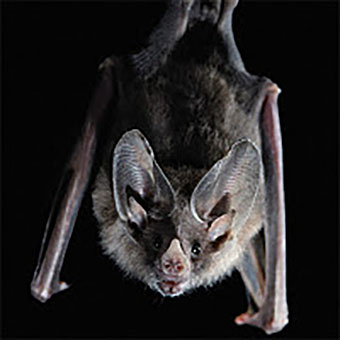Think your pet doesn’t need a rabies vaccine because it lives indoors? Think again. Bats have been known to fly through open windows or chimneys. Dogs and cats that go outdoors are at risk for rabies exposure through wildlife. Felines that hunt and bring “presents” have added rabies risk.
In May 2013, two bats in Clark County, Nevada tested positive for rabies. One of those bats was actually dropped off at my hospital and later tested positive for rabies. Fortunately no pets or people were identified as exposed to that bat. I just learned of yet another new case of a rabies positive bat reported in the Las Vegas area.
The discovery of these rabies positive bats shouldn’t cause panic, but rather drive the importance of rabies awareness in the community. And with World Rabies Day arriving September 28, 2013, it’s high-time to answer common questions about rabies.
What is rabies?
Rabies is a viral disease causing encephalitis (brain inflammation) that affects all mammals including humans. The disease is almost always fatal. Over 55,000 people worldwide die of rabies every year, but fortunately U.S. human deaths are rare with 1 to 2 reported per year. Pet and farm animal rabies cases do occur in the U.S. though, usually after tangling with wildlife.
How is rabies passed?
Rabies is passed in saliva through the bite of a rabid animal. Less common exposures to rabies include aerosol transmission, mucous membrane contact, or rare cases of organ transplant in humans.
What are symptoms of rabies?
Excessive drooling, aggression, staggering, and seizures are symptoms of rabies in animals. Wild carnivores, like coyotes, that avoid people are suspect if lacking fear and approaching humans. Nocturnal species like bats that are found out during daylight are also suspect for rabies.
What kind of animals carries rabies?
Although pet and human rabies cases in the U.S. are rare, the infection still abounds in wildlife reservoirs. In the Las Vegas area, bats are most commonly carriers, but other wildlife carriers include raccoons, skunks and foxes.
What do you do if you see a sick or dying bat?
Avoid contact with sick or dying bats. Do not take sick bats to the veterinarian. Call Animal Control if any human or pet exposure to sick bat.
Despite the rabies concern, bats do have an important role in our ecosystem by consuming insects and pollinating plants. Not every bat has rabies, and there are other reasons bats die.
What do I do if a person or pet is scratched or bitten by a bat or other wildlife?
If your pet gets into a fight with a skunk or raccoon, or plays with a dying or dead bat, there is potential for rabies exposure and a report should be made. Call animal control to have the bat or other wildlife picked up.
Possible rabies exposure is evaluated on a case-by-case basis. Because rabies is fatal, any humans with suspect rabies exposure should make a report to the local health department. Fortunately post exposure treatment for people is very effective in preventing disease, and doesn’t involve painful stomach injections reported of long ago.
What happens to pets after exposure to suspected or known rabies?
Ultimately local rabies ordinances dictate how each case is handled. Pets with current or late rabies vaccinations may be quarantined for 10 days.
A pet that never has had a rabies vaccine may be promptly euthanized and tested for rabies. In other cases of unvaccinated pets, extended quarantine periods up to 6 months may arise.
What can I do to protect my pets and family from rabies?
- Vaccinate animals for rabies – this includes dogs, cats, ferrets and select farm animals.
- Teach children never to handle bats.
- Do not keep wild animals as pets.
- Spay and neuter your pets to decrease the desire to roam.
- Maintain control of your pets when outdoors or hiking to avoid accidental exposure to wildlife.
- Bat-proof your home and garage to avoid nesting sites and close encounters with bats.
- Report human bites from pets or wildlife to public health and animal control authorities.
Vaccination is key to protecting pets from rabies and offers peace of mind to pet owners. Rabies vaccine is typically inexpensive in the Las Vegas area- for example a rabies vaccine at my hospital for dogs and cats costs just $10.00.
Rabies vaccination…Just do it!
For more information, visit these websites:
Global Alliance for Rabies Control http://rabiesalliance.org/
Southern Nevada Health District http://www.southernnevadahealthdistrict.org/

